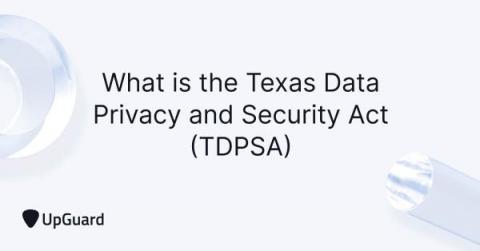Security | Threat Detection | Cyberattacks | DevSecOps | Compliance
Latest News
SEC: Public Companies Must Disclose Material Cybersecurity Incidents Within 4 Days
The US Securities and Exchange Commission (SEC) adopted new rules for cybersecurity risk management, strategy, governance, and incident disclosure by public companies on July 26, requiring public companies to disclose material cybersecurity incidents within four days of an attack. Additionally, registrants must annually report their process, if any, for assessing, identifying, and managing material risks from cybersecurity threats.
Improve Your Security Posture with the Essential Eight
Leaders Embrace New SEC Cybersecurity Regulations
What is the Texas Data Privacy and Security Act (TDPSA)?
Exploring the Nevada Privacy Law (NRS 603A) and its Impact on Data Protection
Device Authority embraces transparency and international standards as the White House Names SBOMs as key pillar of Cybersecurity Implementation Plan
In a significant stride towards strengthening cybersecurity practices and protecting the nation’s digital future, the White House has issued a formal National Cybersecurity Implementation Plan, and named the 5 pillars that it believes are critical to successfully implementing its cybersecurity strategy.
What's in the Proposed Amendment to 23 NYCRR 500?
New York State’s Department of Financial Services (DFS) recently published a proposed amendment to its cybersecurity regulation affecting New York financial institutions. Part 500 of Title 23 of the New York Codes, Rules and Regulations (23 NYCRR 500) governs cybersecurity requirements for financial services companies. When first adopted in 2017, it was the first comprehensive cybersecurity regulation from a state government to govern the financial services sector.











